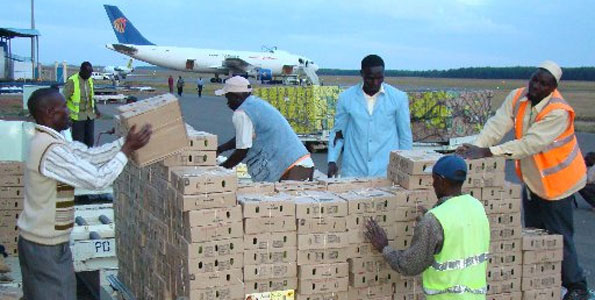Ariston’s fresh fruit sales drop
Listed agro-processor, Ariston Holdings, says the second lockdown had a negative impact on its fresh fruit sales, with a large quantity of the product having to be sold at lower prices.
The group’s fruit category comprises of stone fruit and bananas.
“The lockdown measures introduced by Government in January 2021 have had a very negative impact on sale of fresh fruit,” said Ariston in its first quarter trading update
“Accordingly, a disproportionately larger volume of stone fruit has had to be sent to processors at reduced selling prices.”
The January 2021, 31-day lockdown, which has since been extended by another two weeks, had been necessitated by a second wave of Covid-19 infections. To date Zimbabwe has recorded 34552 cases and 1326 deaths, with the majority of these cases and deaths coming between December 2020 and January 2021.
But despite the ravaging health pandemic, the group has continued to operate as an essential service. And management has said “harvesting and production is progressing well, with volumes predicted to be ahead of prior year.”
For the quarter to December 31, 2020 Ariston’s revenue performance (the group’s revenue remains predominantly foreign currency denominated) improved by 98 percent in inflation adjusted terms, “owing to the sharp increase in sales of tea, fruit and maize.”
This performance was underpinned by volumes increases across most of the group’s segments.
According to management, tea production volumes increased from 821 tonnes to 941 tonnes “due to more favourable weather patterns compared to prior years.”
And while the harvesting of mature macadamia commences next month, Ariston said the lower production that was obtained in the first quarter is a good indicator allowing greater production at maturity.
With regards to the fruits segment, management said “the wetter season experienced in 2021 than in prior year has resulted in a 65 percent increase in banana production.”
Over Q1, the group indicated an increase in poultry production, while on the maize segment (commercial maize and seed maize) it was reported that there was no maize production in the comparative periods, although commercial maize production has now commenced.
“In 2021, the favourable weather patterns allowed for the production of 32 tonnes of commercial maize in the first quarter,” said Ariston.
Ariston closed the fourth quarter of 2020 with substantial tea stocks. In the first quarter of 2021 demand for export tea improved resulting in the group’s stockholdings being depleted.
“There was marginal improvement in selling prices. Local tea sales also increased compared to prior year,” said the group.
Sales of macadamia, fruit, poultry and maize are in line with both the prior period and the production volumes.
Going forward, the group is anticipating to leverage on the positive wet season as well as internal strategies such as cost-containment measures, to boost financial performance for the current year.-ebusinessweekly.c.zw









